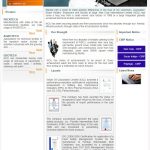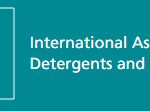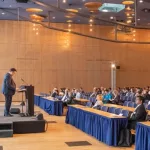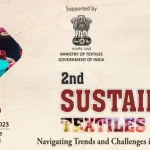15.09.2020
What does Covid-19 imply for retail? How do you build a successful urban farming company? And how do department stores hold their ground? Answers were provided by innovators and retail giants at the GDI Retail Summit from 10 to 11 September 2020. A summary.
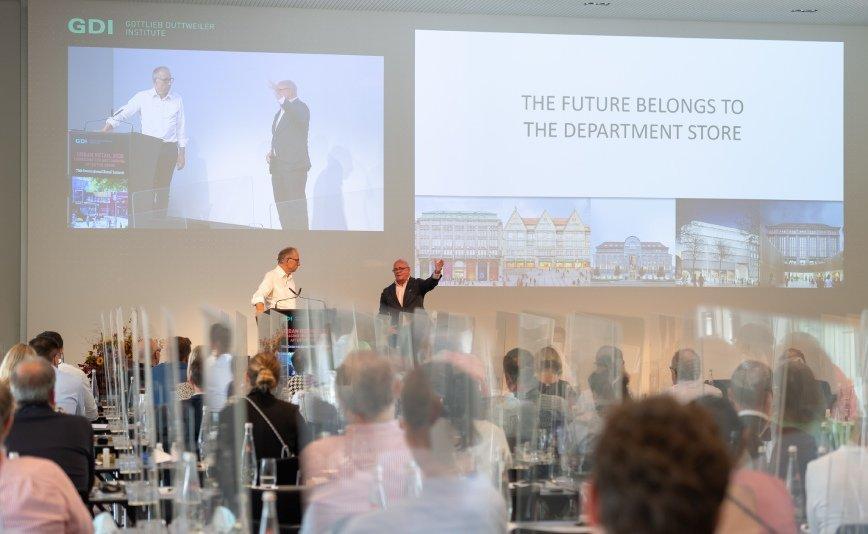 70th International Retail Summit
70th International Retail Summit
David Bosshart, GDI Gottlieb Duttweiler Institute:
“Small is beautiful, speed is king, and hyperlocal is heroic”
 We cannot yet say what the consequences of Covid-19 are, but the old reality will not return. Experts increasingly dominate the opinion market; we are dependent on them, but they cannot connect the dots. We have become mood-oriented, living more and more from the perceived reality. The pandemic is a “black elephant”: we see it but do not recognise it. We need clarity in leadership. Health will play a role in every retail category. People now have more deficit needs (security, income, care) than growth needs. Consumers are becoming more cautious. We have to emotionally nurture the customers. There will be more consolidation: in retail, the tech industry, social media, luxury. How much space do we still need in retail? Small is beautiful, speed is king, and hyperlocal is heroic. Good companies generate trust. For example, good mayors are almost more important today than presidents or chancellors. Deglobalization will occur in the coming years. Cities with a good quality of life will be relatively small, safe, rich, cool (northern) and old (average age 35).
We cannot yet say what the consequences of Covid-19 are, but the old reality will not return. Experts increasingly dominate the opinion market; we are dependent on them, but they cannot connect the dots. We have become mood-oriented, living more and more from the perceived reality. The pandemic is a “black elephant”: we see it but do not recognise it. We need clarity in leadership. Health will play a role in every retail category. People now have more deficit needs (security, income, care) than growth needs. Consumers are becoming more cautious. We have to emotionally nurture the customers. There will be more consolidation: in retail, the tech industry, social media, luxury. How much space do we still need in retail? Small is beautiful, speed is king, and hyperlocal is heroic. Good companies generate trust. For example, good mayors are almost more important today than presidents or chancellors. Deglobalization will occur in the coming years. Cities with a good quality of life will be relatively small, safe, rich, cool (northern) and old (average age 35).
Kristian Villadsen, Gehl Architects:
“We need cities where it is easy to do good”
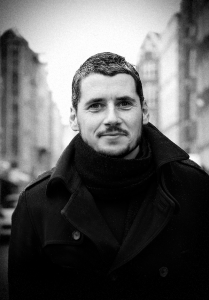 Retail is just one of many components of a city. Most citizens want liveable, sustainable cities. If you think in mono functions – retail, traffic, green space – you will never enact change. People base their behavior on what the physical environment offers them. Humans are lazy. So we need cities where it is easy to do good. Cities are drivers to change the world. It is the everyday landmark that drives quality, not the high-rise buildings. The design of the ground floor is most important to having your retail business succeed. We can’t afford to have cities that are constantly out of order due to construction work. In cities, it’s about creating invitations to stay. We have to start thinking about streets as public spaces. Public space has to offer quality of life, not just the possibility of walking and consumption.
Retail is just one of many components of a city. Most citizens want liveable, sustainable cities. If you think in mono functions – retail, traffic, green space – you will never enact change. People base their behavior on what the physical environment offers them. Humans are lazy. So we need cities where it is easy to do good. Cities are drivers to change the world. It is the everyday landmark that drives quality, not the high-rise buildings. The design of the ground floor is most important to having your retail business succeed. We can’t afford to have cities that are constantly out of order due to construction work. In cities, it’s about creating invitations to stay. We have to start thinking about streets as public spaces. Public space has to offer quality of life, not just the possibility of walking and consumption.
“The magic triangle of new retail connects culture, health and education”
 Two major developments intersect: the reconfiguration of cities and a new definition of retail. The focus is moving away from central cities. We are seeing the urbanisation of the “Donut” (Zwischenstadt), the suburban ring at the fringes of cities. How do we make these parts liveable? Corona might reinforce the “Donut” even more. Special zones are on the rise: private zones, restricted areas. Instead of reforming societies, which we won’t be able to achieve, we start to build special zones. In the future, the following functions will have possible higher value: storage plus, industrial urban agriculture, high-touch/high-end manufacturing, micro living, vanity living, showrooms, brand experiences, commercial art hubs, local distribution spaces. Functions with a possible lower value in the future: traditional office space, car-parking, high-street retail, mid-market hotels. The magic triangle of new retail connects culture, health and education and moves away from buying stuff. We need new lease models.
Two major developments intersect: the reconfiguration of cities and a new definition of retail. The focus is moving away from central cities. We are seeing the urbanisation of the “Donut” (Zwischenstadt), the suburban ring at the fringes of cities. How do we make these parts liveable? Corona might reinforce the “Donut” even more. Special zones are on the rise: private zones, restricted areas. Instead of reforming societies, which we won’t be able to achieve, we start to build special zones. In the future, the following functions will have possible higher value: storage plus, industrial urban agriculture, high-touch/high-end manufacturing, micro living, vanity living, showrooms, brand experiences, commercial art hubs, local distribution spaces. Functions with a possible lower value in the future: traditional office space, car-parking, high-street retail, mid-market hotels. The magic triangle of new retail connects culture, health and education and moves away from buying stuff. We need new lease models.
Markus Laenzlinger, Migrolino:
“Migrolino benefits from the home office trend. With us, people have their emergency purchase assortment right next door”
 Convenience is a business that runs very fast. Migrolino sees opportunity in food convenience: ready to eat, organic, food for allergy sufferers. Migrolino should be reachable from anywhere in Switzerland within five to seven minutes by car. Fuel purchases decreased by 38 percent during the lockdown, alcohol purchases increased by 34 percent. The sale of non-perishable products also increased. During the lockdown, the fact that Migrolino is a food supplier helped, customers benefited from the “emergency purchase assortment next door” and specifically chose small stores where they did not have to spend long. Migrolino is testing the 24/7 store. Logistics is currently still the challenge.
Convenience is a business that runs very fast. Migrolino sees opportunity in food convenience: ready to eat, organic, food for allergy sufferers. Migrolino should be reachable from anywhere in Switzerland within five to seven minutes by car. Fuel purchases decreased by 38 percent during the lockdown, alcohol purchases increased by 34 percent. The sale of non-perishable products also increased. During the lockdown, the fact that Migrolino is a food supplier helped, customers benefited from the “emergency purchase assortment next door” and specifically chose small stores where they did not have to spend long. Migrolino is testing the 24/7 store. Logistics is currently still the challenge.
“If there are no more stores, there is actually no more city”
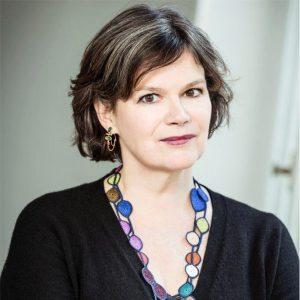 In France, neither positive nor negative externalities are taken into account. Value and price can no longer be reconciled. For example a bookstore is more than a bookstore – it is culture, it is traveling, it is getting to know the world. At the same time, it is a dying store. And if there are no more stores, there is actually no more city. Crafts are gaining importance again and create territorial identity. Semaest wants to bring back diversity. Semeast contributes to the 15-minute city. Is it sustainable? That is always a question of priorities.
In France, neither positive nor negative externalities are taken into account. Value and price can no longer be reconciled. For example a bookstore is more than a bookstore – it is culture, it is traveling, it is getting to know the world. At the same time, it is a dying store. And if there are no more stores, there is actually no more city. Crafts are gaining importance again and create territorial identity. Semaest wants to bring back diversity. Semeast contributes to the 15-minute city. Is it sustainable? That is always a question of priorities.
“There’s huge potential to reimagine a food system that is not linear”
 Farm Urban grows food that’s good for people in ways that are good for the planet. Environments are blocking the path to healthier habits. We need a bottom-up approach to healthcare. There is huge potential to reimagine a food system that is not linear, but mirrored on nature. Farm Urban is working on vending machines with living plants. The concept is called beyond organic: although no pesticides are being used, it can’t be rated “organic”, because no soil is being used. It creates a movement the whole city can get behind.
Farm Urban grows food that’s good for people in ways that are good for the planet. Environments are blocking the path to healthier habits. We need a bottom-up approach to healthcare. There is huge potential to reimagine a food system that is not linear, but mirrored on nature. Farm Urban is working on vending machines with living plants. The concept is called beyond organic: although no pesticides are being used, it can’t be rated “organic”, because no soil is being used. It creates a movement the whole city can get behind.
“It’s okay if we only think in terms of functionality”
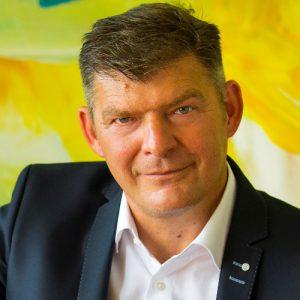 Grass can be processed purely mechanically, unlike wood, which requires chemicals. All types of paper can be derived from grass. The production of paper from grass results in 90 percent energy savings, 75 percent less CO emissions, and 99.9 percent water savings compared to the production of normal pulp. It’s fine for Creapaper to focus on functionality; the paper doesn’t have to be pure white. All paper mills can process grass without new investments. Creapaper went into mass production two years ago. Within two years, production from grass should come at the same price as paper made of wood.
Grass can be processed purely mechanically, unlike wood, which requires chemicals. All types of paper can be derived from grass. The production of paper from grass results in 90 percent energy savings, 75 percent less CO emissions, and 99.9 percent water savings compared to the production of normal pulp. It’s fine for Creapaper to focus on functionality; the paper doesn’t have to be pure white. All paper mills can process grass without new investments. Creapaper went into mass production two years ago. Within two years, production from grass should come at the same price as paper made of wood.
“We are no longer the brand customer. We are now the marketplace customer”
 Covid, marketplaces and omnichannel have changed consumer behavior, creating the digital consumer. We are no longer the brand customer. We are now the marketplace customer. The rules of the game have changed – convenience is the number one reason shoppers choose online retail, cost is number one when selecting delivery options. Fulfilment impacts customer decisions. Marketplaces like Amazon impact brands and businesses. Brands need to scale and optimize, offer more delivery and fulfillment options, more real-time visibility and communication, and more optimized service models. The successful marketplace model boils down to technology and logistics.
Covid, marketplaces and omnichannel have changed consumer behavior, creating the digital consumer. We are no longer the brand customer. We are now the marketplace customer. The rules of the game have changed – convenience is the number one reason shoppers choose online retail, cost is number one when selecting delivery options. Fulfilment impacts customer decisions. Marketplaces like Amazon impact brands and businesses. Brands need to scale and optimize, offer more delivery and fulfillment options, more real-time visibility and communication, and more optimized service models. The successful marketplace model boils down to technology and logistics.
“We don’t sell anything you need, but we sell dreams”
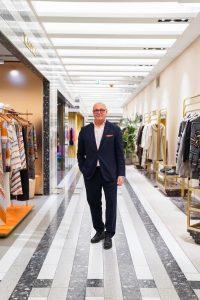 There is no brand that the KaDeWe Group would like to have that it does not have. With its 30 top brands, the KaDeWe Group generates 40 percent of its sales. During the pandemic, it helps that although the Group generates 20 percent of its sales with tourists from outside Europe, 65 percent of sales are generated with domestic customers in Germany. Service is the “pièce de résistance”. Harrods in London has 200 private shoppers. They were lifelines to the outside world during the lockdown. 2000 brands are offered in the stores, excluding food. It is important that the department store does not become a shopping mall. Why should you still go to a store in the future? Because of the exclusivity. That is also defined by the availability of goods, not just by the price. The department stores of the KaDeWe Group don’t sell anything you need, but they sell dreams.
There is no brand that the KaDeWe Group would like to have that it does not have. With its 30 top brands, the KaDeWe Group generates 40 percent of its sales. During the pandemic, it helps that although the Group generates 20 percent of its sales with tourists from outside Europe, 65 percent of sales are generated with domestic customers in Germany. Service is the “pièce de résistance”. Harrods in London has 200 private shoppers. They were lifelines to the outside world during the lockdown. 2000 brands are offered in the stores, excluding food. It is important that the department store does not become a shopping mall. Why should you still go to a store in the future? Because of the exclusivity. That is also defined by the availability of goods, not just by the price. The department stores of the KaDeWe Group don’t sell anything you need, but they sell dreams.
Stephanie Kelton, Stony Brook University:
“Deficits, not debt, are the solution to the problem”
 Projection: economies will grow, and will surpass pre-Covid growth. However, nobody knows exactly what we are facing in the years ahead. We are critically dependent on policy responses that materialise in terms of economic outcomes. Monetary policy alone cannot get us where we need to go. New reality: fiscal dominance with central banks playing supporting role. Deficits, not debt, are the solution to the problem. Taxes and spending should be decoupled. Relevant constraint is inflation, not solvency.
Projection: economies will grow, and will surpass pre-Covid growth. However, nobody knows exactly what we are facing in the years ahead. We are critically dependent on policy responses that materialise in terms of economic outcomes. Monetary policy alone cannot get us where we need to go. New reality: fiscal dominance with central banks playing supporting role. Deficits, not debt, are the solution to the problem. Taxes and spending should be decoupled. Relevant constraint is inflation, not solvency.
Bruno Maçães, Hudson Institute:
“Belt and Road is not about infrastructure. It is about economic influence and economic power”
 Belt and Road is not about infrastructure. It is about economic influence and economic power. Infrastructure is only one pillar. Belt and Road has changed and facilitated the landscape for China’s ecommerce, not only physically, but also in terms of customs and legal issues. Belt and Road made it possible for Alibaba to become a dominant presence in Russia. If China wants to become a technologically advanced country, they need to move hightech capital and labour into certain areas. They need value chains and economic specialisation. The core of global economic power is to control global technical standards. If we exclude some Chinese technologies, we certainly will be sore. China is not converging with the West. There is very limited investment potential in Belt and Road for Europeans: more than 90 percent of the contractors are Chinese or local companies.
Belt and Road is not about infrastructure. It is about economic influence and economic power. Infrastructure is only one pillar. Belt and Road has changed and facilitated the landscape for China’s ecommerce, not only physically, but also in terms of customs and legal issues. Belt and Road made it possible for Alibaba to become a dominant presence in Russia. If China wants to become a technologically advanced country, they need to move hightech capital and labour into certain areas. They need value chains and economic specialisation. The core of global economic power is to control global technical standards. If we exclude some Chinese technologies, we certainly will be sore. China is not converging with the West. There is very limited investment potential in Belt and Road for Europeans: more than 90 percent of the contractors are Chinese or local companies.
Torsten Toeller, Fressnapf Holding:
“Our recipe for success: we are not satisfied, not lazy, but customer-centric”
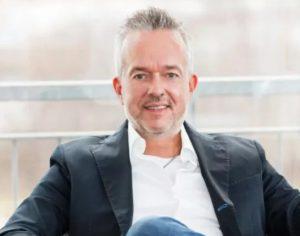 Corona has proven that we are crisis-proof. In this crisis, the emotional bond with pets has become even more intense, and we benefit from this. Our recipe for success: we are not satisfied, not lazy, but customer-centric. Money is important, but usually businesses fail because of lacking competences. Hire people who are better than you – that is the best you can do. Fressnapf relies on omnichannel: in that way, small city areas can offer the entire product range via “extended online shelves”. The company is growing online by 35 percent per year. Omnichannel customers are substantially more valuable for Fressnapf than pure online or stationary customers. They buy three times as much. A strong corporate culture and employee confidence have been important for their success.
Corona has proven that we are crisis-proof. In this crisis, the emotional bond with pets has become even more intense, and we benefit from this. Our recipe for success: we are not satisfied, not lazy, but customer-centric. Money is important, but usually businesses fail because of lacking competences. Hire people who are better than you – that is the best you can do. Fressnapf relies on omnichannel: in that way, small city areas can offer the entire product range via “extended online shelves”. The company is growing online by 35 percent per year. Omnichannel customers are substantially more valuable for Fressnapf than pure online or stationary customers. They buy three times as much. A strong corporate culture and employee confidence have been important for their success.
“Your competition is probably not the one you think it is”
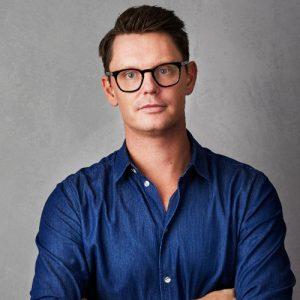 Klarna is operating in one of the most distrusted industries. The financial industry has traditionally been highly administered and predictably boring. Consumer demands have changed. None of Klarna’s competitors have adapted. Consumers want experience, hyper personalization, instant rewards, gamification. The trend of super apps is slowly coming to Europe. Young people don’t trust media and advertising anymore, but they trust their friends. Brands that don’t understand how to engage with communities do not have a bright future. Your competition is probably not the one you think it is; for Klarna, it’s Netflix.
Klarna is operating in one of the most distrusted industries. The financial industry has traditionally been highly administered and predictably boring. Consumer demands have changed. None of Klarna’s competitors have adapted. Consumers want experience, hyper personalization, instant rewards, gamification. The trend of super apps is slowly coming to Europe. Young people don’t trust media and advertising anymore, but they trust their friends. Brands that don’t understand how to engage with communities do not have a bright future. Your competition is probably not the one you think it is; for Klarna, it’s Netflix.
Simona Scarpaleggia, Edge Strategy:
“Empowering and believing in people is key.”
 The world of work is disrupting businesses. A 3D transformation is happening in the world of work through digitalisation, new organisational models and diversity. Leaders have an important role in taking the implications of digitization into consideration. The organisational pyramid is over. Gender equality can not be led by one organisation alone. Leaders should partner with others. People want to work for good companies. Empowering and believing in people is key.
The world of work is disrupting businesses. A 3D transformation is happening in the world of work through digitalisation, new organisational models and diversity. Leaders have an important role in taking the implications of digitization into consideration. The organisational pyramid is over. Gender equality can not be led by one organisation alone. Leaders should partner with others. People want to work for good companies. Empowering and believing in people is key.
“We are challenging traditional definitions of luxury”
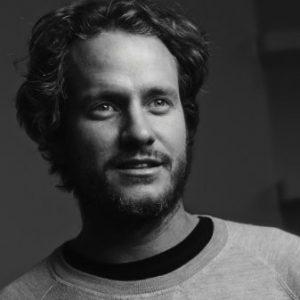 We know rental is coming. The idea behind Cocoon is a truly circular business model that is aligned with rather than opposing luxury brands. Core customer segment is aged between late 20s to early 40s, selfmade, working in central London. Our bags are complementing a broader collection. Cocoon appeals primarily to female shoppers. Provenance is always an issue in the whole process, also when the bags are returned. Switzerland would be a very good target demographically.
We know rental is coming. The idea behind Cocoon is a truly circular business model that is aligned with rather than opposing luxury brands. Core customer segment is aged between late 20s to early 40s, selfmade, working in central London. Our bags are complementing a broader collection. Cocoon appeals primarily to female shoppers. Provenance is always an issue in the whole process, also when the bags are returned. Switzerland would be a very good target demographically.
“We over-shop, we over-consume and we over-discard.”
 Today, the fashion industry is a USD 2.5 trillion a year industry. By 2030, this number is expected to grow by 81%. But this growth model is not sustainable. The largest problem is overproduction. We over-shop, we over-consume and we over-discard. Reduction is key and some brands are embracing it. We should rethink the concept of success: What is success? Being the richest person in the world? Selling the most? Increasing GDP? Or is success something more substantial? For example, increasing the life of others, or not harming the environment. We should pay more for clothes, since we are not paying everyone in the supply chain. And we can pay more, we’ve just been conditioned not to. It is essential to hold companies accountable regarding ethical behavior.
Today, the fashion industry is a USD 2.5 trillion a year industry. By 2030, this number is expected to grow by 81%. But this growth model is not sustainable. The largest problem is overproduction. We over-shop, we over-consume and we over-discard. Reduction is key and some brands are embracing it. We should rethink the concept of success: What is success? Being the richest person in the world? Selling the most? Increasing GDP? Or is success something more substantial? For example, increasing the life of others, or not harming the environment. We should pay more for clothes, since we are not paying everyone in the supply chain. And we can pay more, we’ve just been conditioned not to. It is essential to hold companies accountable regarding ethical behavior.
